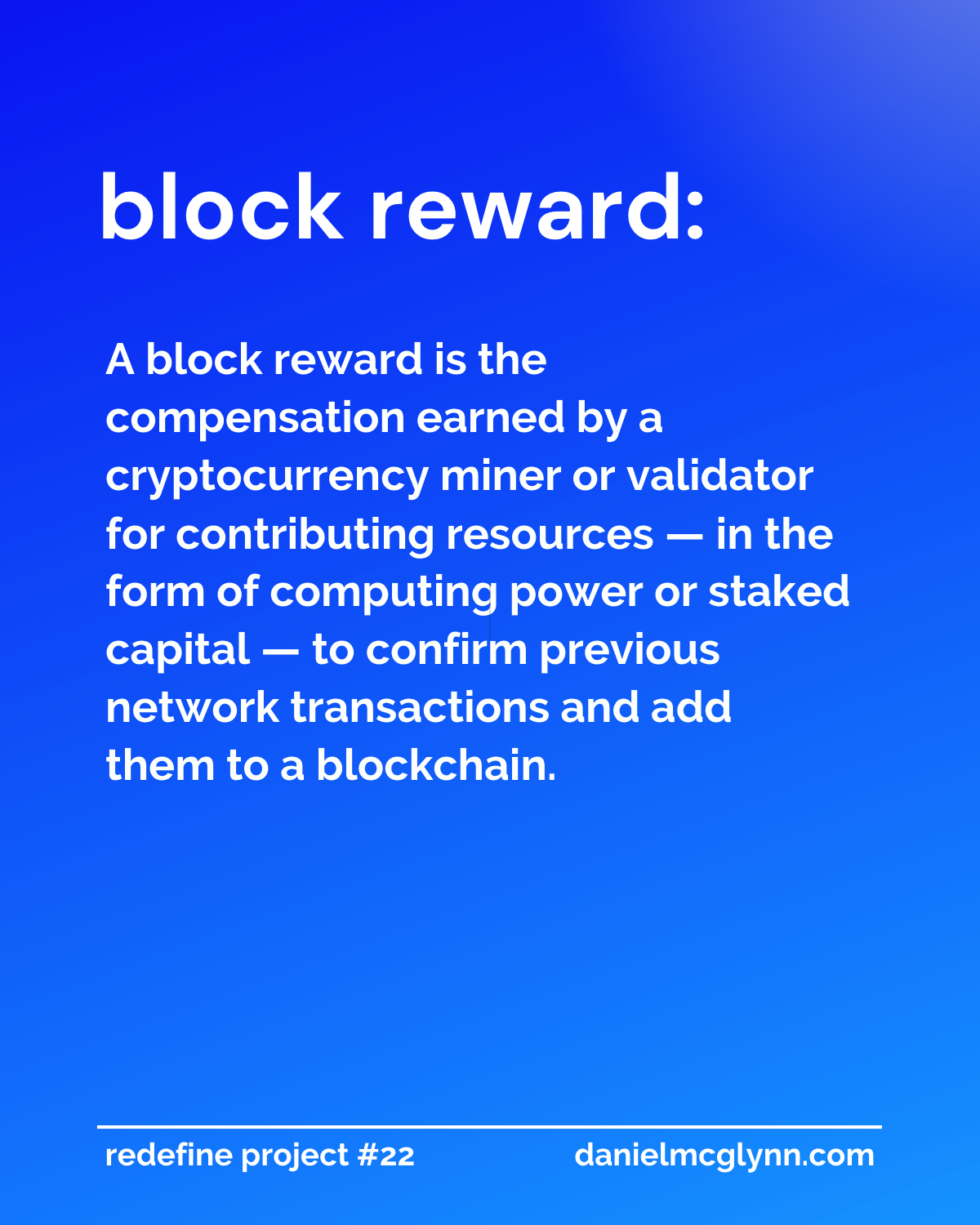A block reward is the compensation earned by a cryptocurrency miner or validator for contributing resources — in the form of computing power or staked capital — to confirm previous network transactions and add them to a blockchain.
Like the name implies, a blockchain is a string of blocks of confirmed transaction data (the blocks) that relate to one another (the chain). Each block of confirmed transactions contains information important to the network such as user addresses and asset balances.

Collectively, when all of the blocks are organized and linked together using some kind of consensus mechanism (such as proof-of-work or proof-of-stake), a blockchain functions like an open, public digital ledger.
A block reward accomplishes multiple goals that are important to the overall health and functioning of a decentralized, permissionless blockchain. Some key services enabled by a block reward system include incentivizing network upkeep and also providing a means of issuing and distributing new currency.
The reward amount will vary depending on the underlying network — and might change over time to stick to issuance schedules. The structure and format of how block rewards are issued is a key component of the overall economics (or tokenomics) of a blockchain system.
In terms of defining the economics, a block reward is tied to the overall supply of the currency (this could include having an unlimited supply, which influences the value of the asset). A block reward also helps get new currency into circulation and distributed among the many nodes competing for a block reward.
In other words, without a block reward system — or a means to pay network nodes to help with the transaction process — it would be impossible to keep a network running without bringing in some kind of command and control structure like a company or organization to run the actual nodes, which would kill the underlying decentralized attributes.
So block rewards create one incentive to keep the network moving forward and growing. And the more people that use the underlying digital asset network, the more valuable the block reward will become, which encourages more nodes to participate in the overall network.